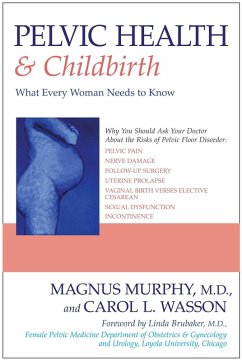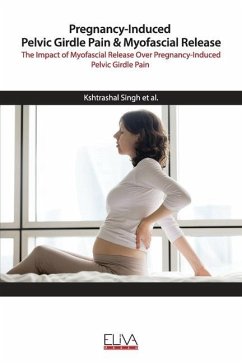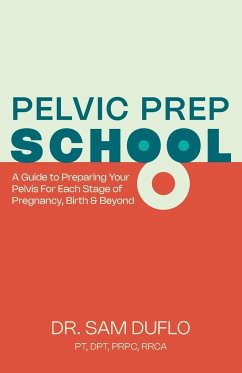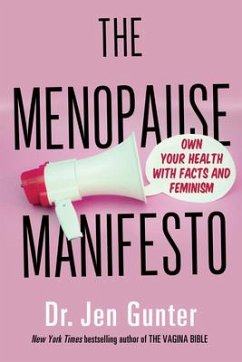
Pelvic Organ Prolapse
The Silent Epidemic
Versandkostenfrei!
Versandfertig in 1-2 Wochen
30,99 €
inkl. MwSt.
Weitere Ausgaben:

PAYBACK Punkte
15 °P sammeln!
The subliminal message women receive from early childhood on is we should not look at, talk about, or acknowledge our vagina. It’s no wonder we have such a difficult time understanding vaginal health, or interpreting symptoms such as incontinence, constipation, pelvic pain, or vaginal tissue bulge. By definition, stigma is a mark of disgrace associated with a particular circumstance or quality. Feeling labeled or defined by a health condition can be devastating. Women typically have never heard of pelvic organ prolapse (POP) prior to the fateful examination which indicates they are experienc...
The subliminal message women receive from early childhood on is we should not look at, talk about, or acknowledge our vagina. It’s no wonder we have such a difficult time understanding vaginal health, or interpreting symptoms such as incontinence, constipation, pelvic pain, or vaginal tissue bulge. By definition, stigma is a mark of disgrace associated with a particular circumstance or quality. Feeling labeled or defined by a health condition can be devastating. Women typically have never heard of pelvic organ prolapse (POP) prior to the fateful examination which indicates they are experiencing the condition. Discovery upon diagnosis is unfortunately the end-result of months, sometimes years, with no clue what is causing the painful, awkward, or embarrassing symptoms occurring. Physically incapacitating to varying degrees based on type(s) and grade of severity, POP makes a mess out of nearly every aspect of women’s lives. Pelvic organ prolapse stigma often generates feelings of shame, distress, helplessness, anxiety, blame, hopelessness, isolation, embarrassment, and fear. Frequently these stigma symptoms are coupled with shock. In the course of scouting for answers to address my own needs, I became determined to find a path to enable women to become informed about pelvic organ prolapse prior to diagnosis-not only women seeking treatment, but in essence, all women. The conversation should begin during the first pelvic exam a woman experiences. Women need to be informed and educated about the significance of the PC muscle for pelvic floor health, childbirth health, sexual health, and continence health. This would enable young women to recognize commonly occurring female pelvic health concerns such as POP or incontinence. It seems absurd that there is so little conversation about pelvic organ prolapse at this stage of women’s health evolution, particularly considering POP has been on medical record for nearly 4000 years. My sincere hope is that this book will generate open dialogue to enable women to recognize symptoms indicating POP, as well as stimulate conversations in primary care and gynecology, currently seldom screening for POP during routine pelvic exams. Knowledge of pelvic organ prolapse is a pivotal piece of women’s health awareness, and POP awareness will unquestionably generate the next significant shift in women’s health.














